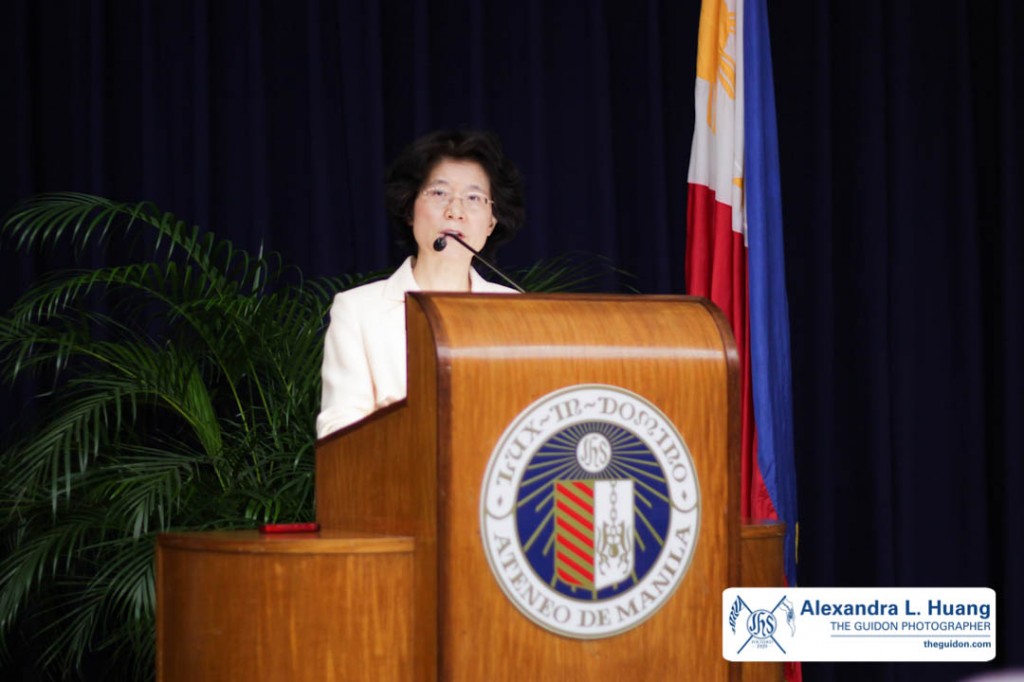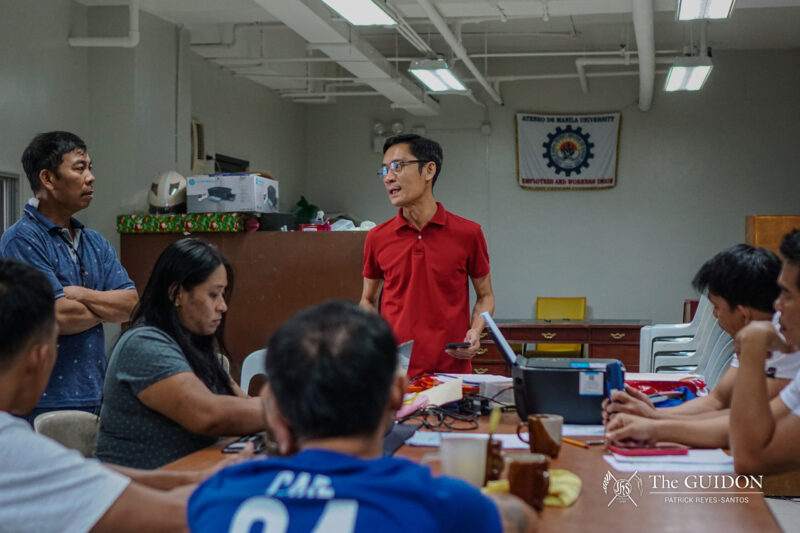CHINESE AMBASSADOR to the Philippines Ma Keqing graced the lecture series celebrating the 25th year of the Chinese studies program in the Ateneo last November 23 at the Escaler Hall.
She was invited to discuss the Chinese economy before students, faculty and staff members, administrators and guests, among whom were university president Jose Ramon Villarin, SJ, university benefactor Ricardo Leong and his wife Dr. Rosita Leong.
“Understanding China is by no means easy,” said Ma in her speech. She added that China and the Philippines should build more mutual trust.
Four aspects of China constituted her speech: history, economic growth, foreign policy and role in Asia.
Two other speakers from the delegation of the Chinese Embassy talked about Chinese military thought and cultural relations between China and the Philippines.
The talk was primarily organized by the Economics Department.
Chinese development
Ma presented the economic accomplishments of China, as well as its points for improvement.
Ma said that China leads in output in around 220 of over 500 major industrial products. She also said that the Chinese government had subsidized health insurance, and the pension system covers more than 95% of the Chinese population, including those in the countryside.
However, she added that one out of 10 Chinese lives under a dollar per day. Ten million Chinese have no access to electricity, and China ranks only 90th in the world in terms of per capita gross domestic product.
“Promoting development… is the constant top priority of China,” said Ma.
Political issues
The Chinese ambassador stressed that China wants to “create a stable and favorable international environment for its development and maintain world peace and propel common development.”
She presented and addressed two allegations against China.
The first allegation is that China is bound to become aggressive with its rise to power. Ma explained that with the changing times, it is no longer the case that emerging powers feel the need to become aggressive.
The second allegation revolves around China’s military build-up. She clarified that China has its legitimate rights and interests to protect, and that its foreign policy is defensive in nature.
“What China seeks in the [East and Southeast Asian] region is mutual trust,” Ma stressed. “China supports Asean’s [Association of Southeast Asian Nations] bid to seek strength in unity.”
She said that China opposes hegemony and power politics and recognizes the role of Asean in the economic performance of the region, noting that “China–Philippine relations are characterized by amicable relations.” She reported that trade between China and the Philippines reached as high as $32.2 billion in 2011.
Addressing the students in the audience, she added, “The future of Philippine–Chinese relations lies [with] you.”







